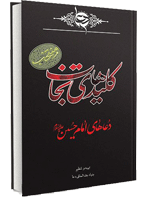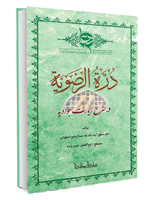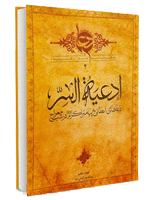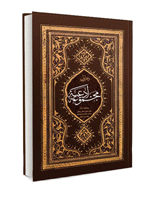- Prophet Muhammad (P.B.U.H&HF): Whenever one of you is needy and brings that to other people, he will not be satisfied. and Whenever someone is needy and brings that to Lord, he shall give him what he wants. sooner or later.
- Imam Sadiq (As.): Whenever you had tenderness in your heart, Pray. because your heart doesn't get tender unless it's pure.
- I told to Imam Baqir (A.S): “What is the meaning of “truly, Ibrahim was awwah and patient”? He replied: “Awwah means (the one who is) praying (to) and wailing (for God) a lot.””
- “Two people, who have acted alike, enter the heaven, but one of them sees the other one in a higher place. Then, he says: O’ Lord! How come has he a superior place in comparison to me while we acted alike? God the Almighty replies: “because he asked Me (whatever he needed) and you did not do that”.
- “The most knowledgeable person to God is the one who asks more from Him”
- “Whoever prays a lot, the angels say: This voice is familiar (to us) and this is the supplication which is accepted and this is the need which is provided”
-
The Holy Prophet (peace be upon him and his Household):
-
وَ لَوْ عَرَفْتُمُ اللَّهَ حَقَّ مَعْرِفَتِهِ لَزَالَتِ الْجِبَالُ بِدُعَائِكُم
If you knew god the way you should’ve known, Mountains definitely will be moved by your supplications. - Crying out of fear of God is the key to his mercy, it’s a sign for his acceptance and it’s a door to answering [supplications]
- Pray to God and believe in his answeres. But understand that God won't accept prays from an unwitting oblivious heart.
The Supreme Light And Created Lights: A Qur'anic Perspective
The Supreme Light And Created Lights: A Qur'anic Perspective
By Muhammad Ali Shomali
------------------------------------------------------------
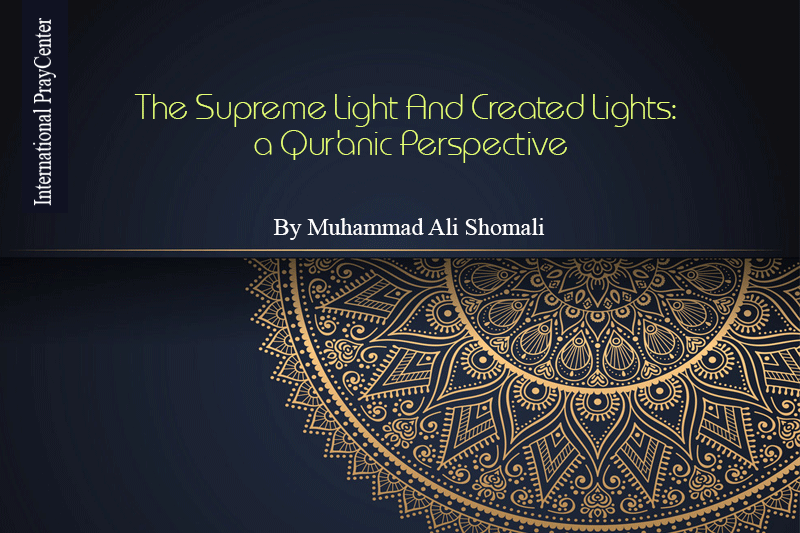
Abstract
Of the most important names God uses to describe Himself in the Qur’an is that of light (noor). God Himself is the supreme Light and all that He created are also lights. Using the Qur’an and Islamic traditions, this article addresses some of the major aspects of the concept of light. Light is one of God’s qualities, and every being in the universe is endowed with it. Moreover, the amount of light all creatures hold depends on the capacity of their existence; some beings have a fixed amount of light, while rational beings with free will, that is, human beings and jinn, can increase their light with faith and good deeds, or decrease it with disbelief and transgression.
Introduction
Different names and notions are used by people to refer to God, though without a doubt the most important names are those used by God Himself. Among the notions used in reference to God in the Holy Qur’an is that of light (noor). It has the advantage in that most people generally comprehend and like this concept. Moreover, many express interest in it and long to escape its opposite, which is darkness. It can be understood from the Qur’an and Islamic traditions that this concept has a range spanning the entire universal existence and is capable of being the basis for a theological and systematic account of the entire world. In this article, we will attempt to address some of the major aspects of this account.
Light as one of God’s qualities
In various languages and religious cultures, the use of the word light in reference to God is not uncommon, and many passages in the Qur’an and hadith affirm the appropriateness of its usage. The Qur’an states: God is the Light of the heavens and the earth. The parable of His Light is a niche wherein is a lamp - the lamp is in a glass, the glass as it were a glittering star - lit from a blessed olive tree, neither eastern nor western… (24:35)
In this verse, known as Ayat al-Noor (the ‘Verse of Light’) in chapter Noor, God describes himself as the Light of the heavens and the earth; God is Light, the heavens and the earth have light, and the light of the heavens and the earth stem from God. There are additional verses that use the term “God’s light;” however, upon reflection, it becomes clear that they are not about the light which is God Himself. Rather, what is meant is that light that is from God:
They desire to put out the light of God with their mouths, but God is intent on perfecting His light though the faithless should be averse. (9:32)
They desire to put out the light of God with their mouths, but God shall perfect His light though
the faithless should be averse. (61:8)
Thus, the ‘light’ that the opponents of truth and virtues set out to destroy is light that is from God, and not the light of God himself. This light is God’s creation and can be increased. But if ‘light’ were to indicate the light which is God Himself, its completion would have no meaning, since God is the Absolute light. In the du‘a (supplication) of Jawshan Kabeer, we read:
O Light of lights, O Illuminator of light, O Creator of light, O Planner of light, O Estimator of light, O Light of all lights, O Light that precedes in existence every light, O Light that will survive all lights, O Light that is above every light, O Light like of which there is no light. (Article 47)
We also read in Du‘a ‘Ahd:
O Allah! Lord of the Great Light, Lord of the Elevated Throne, Lord of the tumultuous seas, and the revealer of the Tawrah, Injeel, and Zaboor, Lord of the shadows and the warmths, and the revealer of the Great Qur’an. Lord of the proximate angels and prophets and messengers. O Allah, I beseech thee, for the sake of Your Nobel Visage, and for the sake of Your Enlightening Visage, and Your ever existing kingdom. O Ever Living! O Controller! I beseech Thee in Your Name which lit the heavens and the earths; and in Your Name, by which the ancient and the latter ones become upright.
We also read in the Dua of Kumayl: “Oh Light, oh Holy [One].”
God is a Light that is far from any defect. In other words, God is an absolute Light in which darkness has no way in. Indeed, darkness is the same as the limitation or defect of light, which can only be conceivable in created lights. This will be explained further below.
Every creature has light
As mentioned earlier, the heavens and the earth – which is for all of existence in the universe – are illuminated through God’s light and are radiant.1 Right now the heavens and the earth shine: “…I beseech Thee in Your Name which lit the heavens and the earths” (Du‘a ‘Ahd).
Thus, the Qur’an’s statement of the earth’s radiance with God’s light on the Day of Judgment does not indicate that there is an absence of light at present; rather, it means that on the Day of Judgment the earth’s radiance will reveal itself and, without the help of sunlight, electricity, and the like, the earth will glow by means of a God-given light Referring to the fact that everything is made as a kind of light, the Qur’an says:
All praise belongs to Allah Who created the heavens and the earth and made the darknesses and the light. Yet the faithless equate [others] with their Lord. (6:1)
The creation of the heavens and the earth, and the structure of the universal system based on light and darkness means that every being on this universe is endowed with light. This is a common trait shared by all beings, a trait derived from their Creator who is absolute Light. At the same time, the difference between created beings is also related to the fact that they are light.
This is because non-light is equivalent to darkness, and darkness - like a shadow - is the absence of matter. This is in fact, according to philosophy, the same as gradation (tashkik) in which the differentiating factor is the same as the common factor. In other words, what all of creation have in common is the fact that they each have light, but they differ in their levels of its intensity. A being with absolutely no light is inconceivable – there is no such thing as absolute darkness. Based on the premise that the Creator is absolute light, and that light is consequently attributed to Him, all beings possess some degree of light. Every being is a sign of the Divine and in this way is reflective of the Divine’s light. If we perceive all beings from this point of view, we see them as having light, and since this serves as a sign of God and reminds us of God, it will also be the source of our getting closer to Him. If someone or something brings darkness to our hearts and renders us heedless of God, it is not because they are absolutely dark; rather it is because they divert our attention away from God by drawing our attention to themselves or anything independent from God or it is because we have not approached them properly.
In Du‘a Kumayl we read, “And by the light of Your face, for which all things are illumined.” When creations’ attention is turned to God, they illuminate, and if we see them from this angle, we will also be able to witness this illumination because they will also manifest as the “face” of God, as said in the verse, “…so whichever way you turn, there is the face of God.” (2:116)
The amount of light creatures hold depends on the capacity of their existence
For most creatures, their capacity for light is not determined voluntarily and therefore, their light is incapable of escalation or decline. Angels, who have high degrees of brightness, have a fixed capacity:
“There is none among us but has a known place.” (37:164)
This is true for angels as a whole [with respect to other beings] as well as individually [in relation to one another]. For example, no matter how hard angels try, they cannot reach the position of Adam, God’s vicegerent. Likewise, Angel Michael cannot reach Angel Gabriel’s position, nor can Angel Gabriel descend to Angel Michael’s level. Humans (and Jinn) on the other hand possess freedom of choice and, as a result, if they choose the right path, they can acquire more light; if they choose the wrong path, their light will subside. Therefore, there are three possible states for humans: The inherent state in which humans naturally possess light and with it can ascend to high levels of nearness to God. Every human is created pure:
“Every child is born with a pure nature.”2
And every human is created in the best way:
“We certainly created man in the best of forms.” (95:4)
They are also guided and it is through their own choice that they establish their future:
“Then We relegated him to the lowest of the low, except those who have faith and do righteous deeds. There will be an everlasting reward for them” (95:5-6).3
Every human being has been given enough light to find his way towards God and perfection. Of course, based on different factors, humans may also possess different degrees of light from the beginning, as they may have different levels of intelligence. In any case, they all have immense brightness and encounter enough light to find the path and embark on it. The state of acquired faith and purity that increases human brightness and can eventually make him God’s vicegerent, allowing him to spread brightness among other creatures. The state of acquired disbelief and impurity that decreases human brightness to the point where one becomes lower than an animal, or the lowest of the low (asfala safileen). We read in the Qur’an:
God is the Guardian of the faithful: He brings them out of darkness into light. As for the faithless, their patrons are the Rebels, who drive them out of light into darkness. They shall be the inmates of the Fire, and they shall remain in it [forever]. (2:257)
This verse eloquently illustrates the above three points. Initially it may appear as if there are four states:
First, the state of darkness before faith; Second, light that comes after faith; Third, the state of light before disbelief; and Fourth, darkness after disbelief. However, after contemplation, it becomes clear that the above verse refers to the same three states mentioned above:
Considering that a) the states of faith and disbelief are acquired and b) the state before faith and disbelief is the first innate and natural state, a person’s state at the starting point – before consciously choosing faith or disbelief – must be the same. However, because light and darkness are relative, the first state for a believer who acquired brightness during his lifetime is thought to be dark, and his path towards faith starts from darkness towards brightness. But the path of the disbeliever starts from light towards darkness. Thus, the first state for the disbeliever is light.
Therefore, it is appropriate to examine acquired light and the path required to obtain it. It is natural, in a comparative manner, to also turn our focus to acquired darkness, which is attained through disbelief and sin.
Acquired light
The most important factor that causes the acquisition of light is faith. Indeed, by attaining faith, humans are exposed to the radiance of God. The Qur’an states:
Is someone whose breast God has opened to Islam so that he follows a light from His Lord? So woe to those whose hearts have been hardened to the remembrance of God. They are in manifest error. (39:22)
This verse demonstrates that we are not in need of producing light. At most, what we must do is open our heart toward the divine light so that it shines over our hearts:
“…the hearts that are in the breasts!”(22:46)
This is achieved by remembering God, a matter which will be discussed later. The Qur’an also states:
Is he who was lifeless, then We gave him life and provided him with a light by which he walks among the people, like one who dwells in a manifold darkness which he cannot leave? (6:123)
If a person lives a faith-based life, a believer who is God-conscious and has strong and true faith in the prophets, he will have light in this world which he will walk with amongst the people:
“O you who have faith! Be wary of God and have faith in His Apostle. He will grant you a double
share of His mercy and give you a light to walk by.” (57:28)
This light will, in any state – whether in the work environment, in gaining knowledge, or at home – will accompany him to enlighten him and help him make decisions. Of course, not everyone perceives this light in a believer. Even the believer himself may not sense it directly. What is certain, however, is that its effects can be detected and comprehended. Sometimes the light of faith appears on the face of the believer in a way that will give a kind of attraction and spiritual beauty that will draw the hearts towards him. When asked as to why those who say night prayer are the best-looking ones, Imam Sajjad replied, “Because they sought solitude with their lord, so God covered them from His light.”4 As said in the Qur’an:
“Their mark is [visible] on their faces, from the effect of prostration” (48:29)
and
“…The All-Beneficent will endear them [to His creation]” (19:96).
On the Day of Judgment this light will be so evident that even the hypocrites will witness it and wish to attain it from the believers. In two verses from chapters al-Tahrim and al-Hadid, God says that this speedy light will move in front of and from the right side of the believer:
“…With their light moving swiftly before them and on their right” (57:12)
Perhaps it will move speedily forward so that it guides them towards heaven where they will join the nobles; it will move from the right because they are the People of the Right (Ashab al-Yamin) and the book of deeds will be put in their right hand. When the hypocrites see this they will say to the believers, “Let us take some of your light,” unaware of the fact that light cannot be borrowed, loaned, or stolen. Each person must have attained this light for himself in the previous life. It is here, among the believers and hypocrites, where a wall with a door will be hoisted. With the rising of this wall the hypocrites can no longer see the believers and their light, though it will be possible to communicate with them.
Presumably, those who have the grounds to obtain forgiveness will head in the direction of this same door. Because this door protects the believers and their light, within the wall dwell the believers and outside the wall dwell the hypocrites; within the wall is the source of protection and mercy and outside the wall is the source of distance and deprivation - a dangerous punishment. The Qur’an says:
The day the hypocrites, men and women, will say to the faithful, ‘Please let up on us, that we may glean something from your light!’ They will be told: ‘Go back and grope for light!’ Then there will be set up between them a wall with a gate, with mercy on its interior and punishment toward its exterior. They will call out to them, ‘Did we not use to be with you?’ They will say, ‘Yes! But you cast yourselves into temptation, and you awaited and were doubtful, and [false] hopes deceived you until the edict of God arrived, and the Deceiver deceived you concerning God. (57:13 & 14)
After faith, the other important source of acquired light is doing righteous deeds. The Qur’an says: Those who have faith in God and His apostles — it is they who are the truthful and the witnesses with their Lord; they shall have their reward and their light. But as for those who are faithless and deny Our signs, they shall be the inmates of hell. (57:19)
According to this verse, true faith in God and His prophets – which is the surrendering of the heart coupled with required practice – will raise humans to the rank of the truthful and the witnesses who are the favorites of God. Such faith is worthy of divine reward and is also accompanied by light. The deniers of God and His prophets, however, will be deprived and disgraced on the Day of Resurrection.
This verse depicts the stages of perfection of the faithful, based on faith itself. It is not that one must pass faith to reach the next stage; rather, the process is in faith itself. The levels of perfection are the same as the levels of faith, and anything other than faith, such as good deeds, are necessitated by faith and can be defined as the dependencies of faith. Perhaps this is why God says in the Qur’an:
Indeed those who have faith and do righteous deeds, their Lord guides them by the means of their faith. Streams will run for them in gardens of bliss. (10:9)
In addition to reward, light is also given to the believer (mumin). The reward can be in heaven and come in different forms of heavenly blessings. Light, on the other hand, according to the above mentioned verses, is given in this world.
It is not that a believer lacks the light of faith and only on the Day of Judgment, after the examination of deeds and determination of rewards is light given to him. Every good deed increases the light of a believer. The following demonstrates examples of some good deeds that give light:
Wudu’
Imam Sadiq is reported to have said regarding wudu’ (ablution):
Wudu' upon wudu' is light upon light, and whoever renews his wudu' without [having lost it through] ritual impurity, God will renew his repentance without istighfar [asking forgiveness].5 Wudu’ is not only a prelude to worship: it is by itself a kind of worship and causes light. Thus, wudu’ is not only performed for prayer or other acts of worship that require it; rather, wudu’ itself is spiritually significant and one is recommended to be in a constant state of wudu’.
What is interesting is that wudu’ is a kind of remembrance of God and is a source of proximity; repeating it is beneficial as opposed to physical cleanliness in which washing repeatedly may have no use. God not only legislated wudu’ as a prelude for prayer and as a recommended act in itself; it also has a deep, spiritual effect in the real world (‘alam al-takwin). The water used for other than wudu’ purifies only the external; but when used with the intention of performing wudu’, it also attains the power of spiritual purification, and its drops are actually droplets of spiritual purity – or in other words, droplets of light.
This is why the water of wudu’ must be used in wiping while performing it, and it is recommended (mustahab) not to dry the limbs of ablution so that those drops stay on the body for the longest possible time.
In early Islam, the Muslims who were aware of its importance used to take the remaining water from the Prophet’s wudu’ for blessings (tabarruk) and would not let a drop of it fall to the ground. As recounted in hadiths, on the Day of Resurrection, the believers’ faces are luminous and vibrant as a result of performing wudu’ in this world. The Messenger of God said:
On the Day of Resurrection, God Almighty will gather my Ummah from among the other nations with white foreheads from the effects of ablution.6 If this is the light of ablution, then light of prayer can certainly be described as more luminous.
Hajj
Performing hajj (pilgrimage to Mecca) brings its own light. Concerning the light of Hajj, Imam Sadiq said:
“The light of the Hajj ritual remains with a pilgrim so long as he or she does not sin after performing it.”7
Therefore, it is recommended to immediately visit pilgrims upon his return before he sins, resulting in losing his luminance. The Messenger of God said:
Then I saw in my dream a man of my Ummah in such a condition that he had darkness in front of him, darkness on his right, darkness on his left, darkness above him, darkness under him—so much so that he was bewildered and baffled, confused, and confounded. Then along came his Hajj and Umrah and both of them took him out of the darkness and both of them placed him in the light.8
Or in the case of a person who shaves, it is recommended to read the following supplication:
Oh God, give me light on the Day of Judgment for every hair that is shaved.9
Looking after Orphans
In his will to Imam Ali, the Prophet said: O Ali, for those who pass their hands on an orphan’s head as a sign of mercy, God will give them illumination for every single hair (of that head) on the Day of Resurrection.10
Faith and good deeds
In addition to faith and performing righteous deeds, any kind of remembrance of Allah (swt) generates light. The Qur’an says:
O you who have faith! Remember God with frequent remembrance, and glorify Him morning and evening. It is He who blesses you, and so do His angels, that He may bring you out from darkness into light, and He is most merciful to the faithful. (33:41-43)
Commenting on the above verse, the late Allamah Tabataba’i holds that God, after his command for abundant remembrance or remembrance as much as possible, states the fact that if you remember God in such a way, God and His Angels will also send their blessings upon you until it drives you from darkness to light. It becomes clear, therefore, that one of the favours and mercies of God in the right of a believer is sending blessings upon him which is the cause of leaving darkness and moving toward light. Receiving these blessings is possible with frequent invocation. Therefore, with invocation, one can move toward the source of light and increase his/her light.
In Dua Kumayl we read: “O God, verily I seek nearness to You through remembrance of You.”11 Also: “O He whose Name is a remedy and whose remembrance is a cure.”12 Essentially every being, according to the holy essence of God or His names, is luminous: “And by the light of Your face, through which all things are illumined!”13 In Dua ‘Ahd, we read: “I beseech Thee in Your Name which lights up the heavens and the earths.”14
Once they think of God, humans also attain light and tranquility:
“Look! The hearts find rest in God’s remembrance! (13:28)”
And whenever they turn away from God, they will descend into darkness and will have a difficult and dark life:
“But whoever disregards My remembrance, his shall be a wretched life” (20:124).
Meanwhile, it becomes clear from here that since the Prophet constantly remembered Him, God and the Angels continually sent salutations to the Prophet and therefore the Prophet always shined as “a radiant lamp” (33:6) and those who follow him are led towards light:
An apostle reciting to you the manifest signs of God that He may bring out those who have faith and do righteous deeds from darkness into light. (65:11) In verses 35 through 37 of chapter al-Noor, God introduces the places where God’s light can be reached. After stating that Divine Light is like a niche wherein is a lamp that emits light, He says: In houses God has allowed to be raised and wherein His Name is celebrated, He is glorified therein, morning and evening, by men whom neither trading nor bargaining distracts from the remembrance of God, and the maintenance of prayer and the giving of zakāt. They are fearful of a day wherein the heart and the sight will be transformed. (24:36, 37)
This lamp can be reached in those houses which are places for the remembrance of God. It becomes clear that the characteristics of these houses are their connection to those who always remember God, and there is nothing that will make them heedless of remembering Him. This remembrance is not merely the remembrance of the heart; rather, it appears in individual and social behaviours such as prayer and alms-giving (zakat).
Thus, people who are constantly reminded of God not only become illuminated, their homes also become a place of manifestation and radiance of the Divine’s Light, and whoever wants to obtain light could pay heed to God and benefit from His light, considering these houses and the remembrance of God in them.
As stated in both Sunni and Shia sources, these houses are the houses of the prophets. It is stated in the exegesis Al-Durr Al-Manthur (The Scattered Pearl):
After the Prophet (saws) read the verse ‘In houses God has allowed to be raised’ (24:36-37), a man stood up and asked, ‘O Messenger of God, which are these houses?’ to which the Prophet replied, ‘The houses of the prophets.’ At this time Abu Bakr stood up and, while pointing to the house of Ali and Fatimah, asked, “O Messenger of God, is this house among them?” The Prophet said, “Yes, indeed it is one of their best.” 11
Likewise, Ali ibn Ibrahim al-Qummi in his commentary narrates from Jabir from Imam Baqir (as): “They are the houses of the prophets and Ali’s house is one of them.”12 Thus, it is the remembrance of God that causes the light of a person that illuminates the place belonging to him or her. It can be argued that faith also pertains to remembrance. This is why God considers those who lack the light of faith and Islam as hardhearted who are unable to remember God: Is someone whose breast God has opened to Islam so that he follows a light from His Lord [ad the hardhearted alike]? So woe to those whose hearts have been hardened to the remembrance of God. They are in manifest error. (39:22)
------------------------------------
1. For example, see the verse 24:35 and the extracts from the du‘as.
2. Kulayni, al-Kafi, vol. 2, p. 13. Original Arabic text is as follows:
3. The Qur’an also says:
“Indeed We have guided him to the way, be he grateful or ungrateful.” (76:3)
4. Bihar al-Anwar, vol. 84, p. 159.
5. Man lā Yahduruh-u al-Faqih¸ vol. 1, p. 41. Original Arabic text is as follows:
6. Bihār al-Anwār, vol. 77, p. 237. Original text in Arabic is as follows:
7. Ibid. vol. 96, p. 10 & 386. The original text in Arabic is as follows:
8. Ibid., vol. 7, p. 290. The original text in Arabic is as follows:
9. Ibid., vol. 96, p. 304. The original text in Arabic is as follows:
10. Ibid., vol. 74, p. 60. The original text in Arabic is as follows:
11. Al-Durr al-Manthur, vol. 5, p. 50. The original text in Arabic is as follows:
12. Al-Tafsir al-Qummi, vol. 2, p. 104. The original text is Arabic is as follows:



